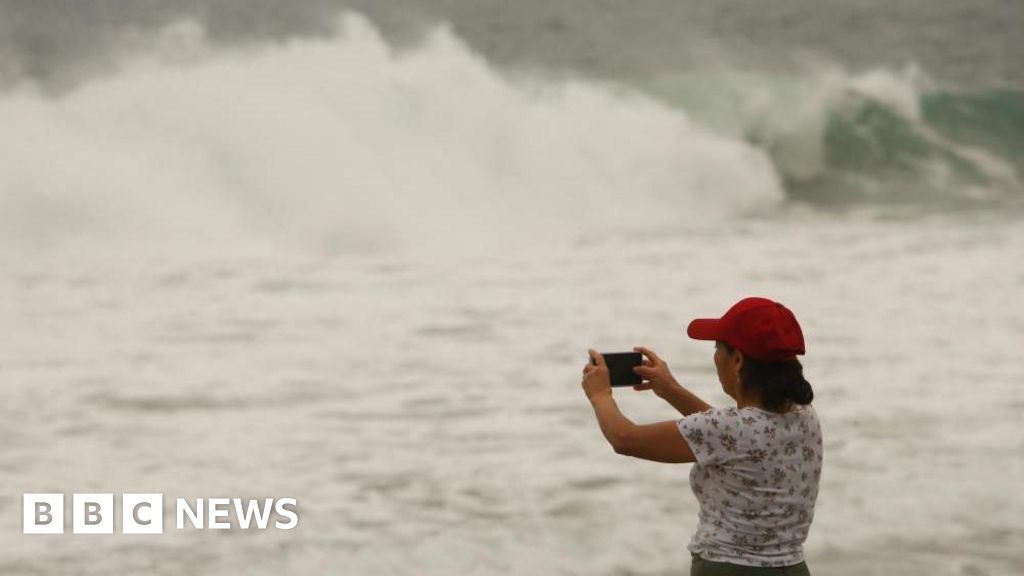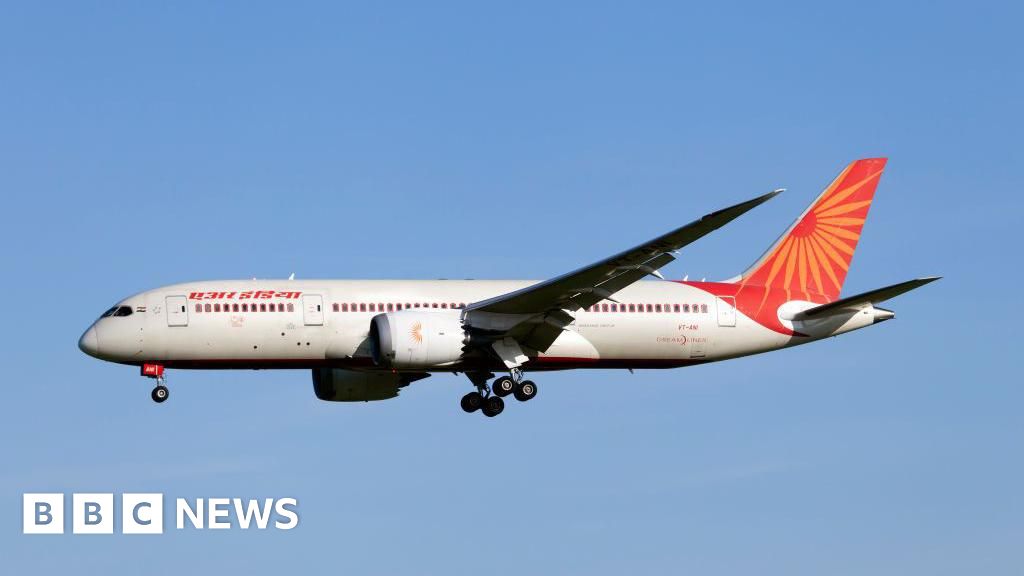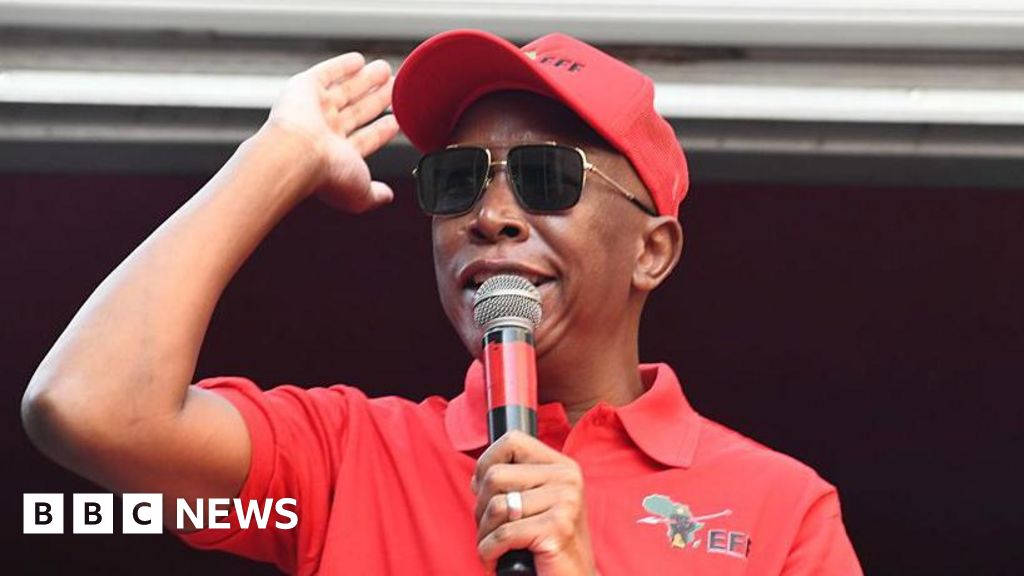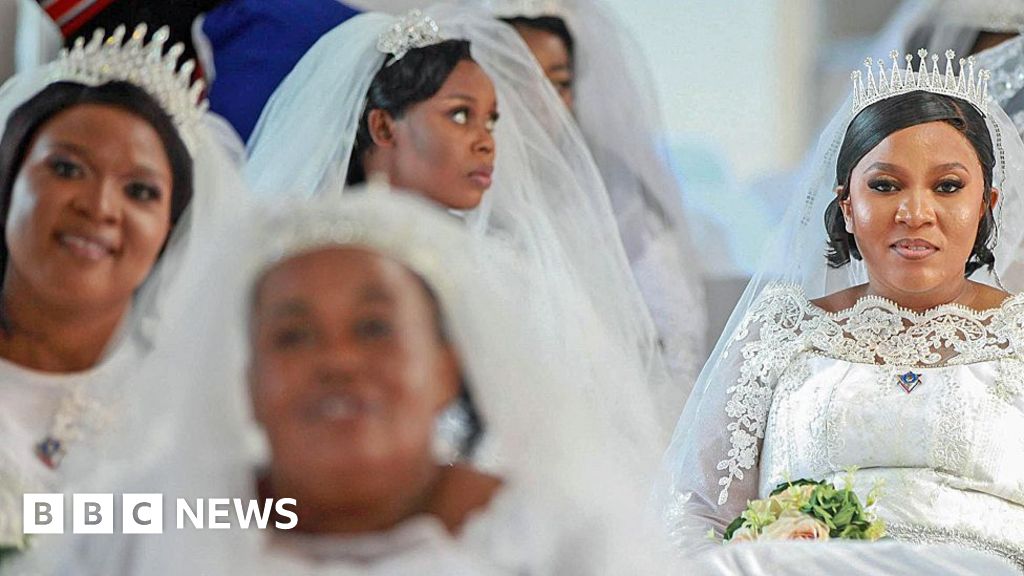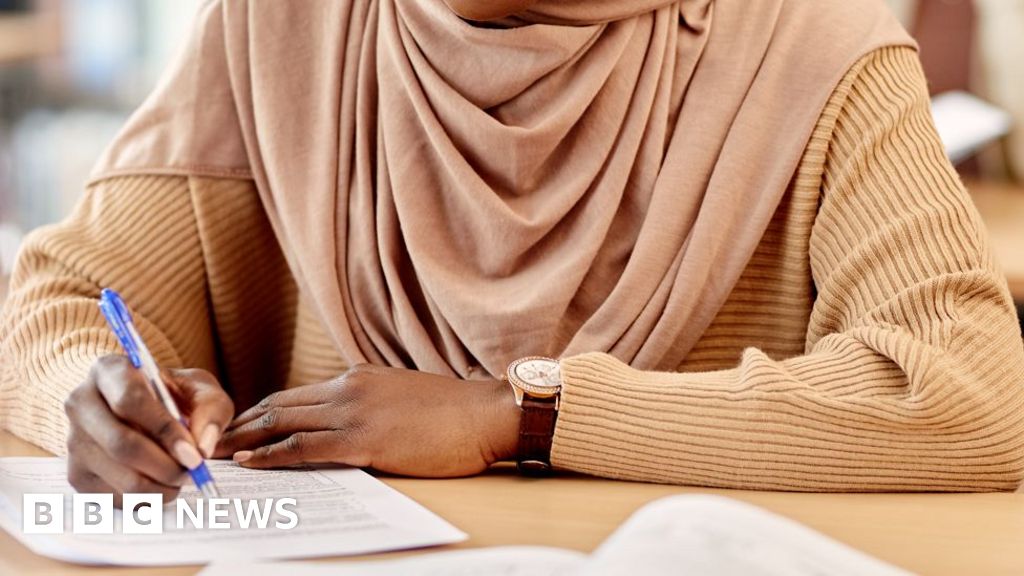BBC News, Zuurbekom
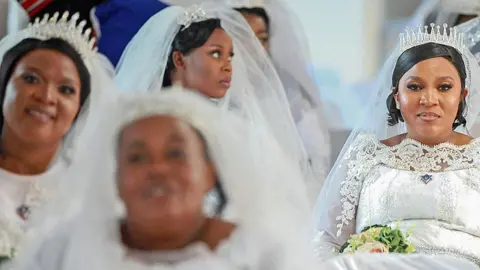 Nhlanhla Phillips
Nhlanhla PhillipsThe bride, Evelyn Sekgalakane, sparkled in white as she walked down the aisle hand-in-hand with Shirley Molala, who was about to become her “sister wife” at a mass wedding celebration at a South African church that encourages polygamy.
Behind them came the groom Lesiba Molala, who was marrying another wife at the elaborate ceremony at the International Pentecostal Holiness Church (IPHC) south-west of Johannesburg.
The polygamous bridal party was among 55 marriages that took place there on Easter Sunday – a loud, long and joyous occasion.
Only seven of the unions were welcoming an extra wife to the family – but all were open to doing so in the future.
“He is a God [who approves] of polygamy,” rang out repeatedly across the packed auditorium.
Shirley, who is Mr Molala’s second wife and has been married to him for 25 years, told me ahead of the big day: “I love polygamy because it is rooted in Biblical teaching” – a reference to passages in the Old Testament of the Bible.
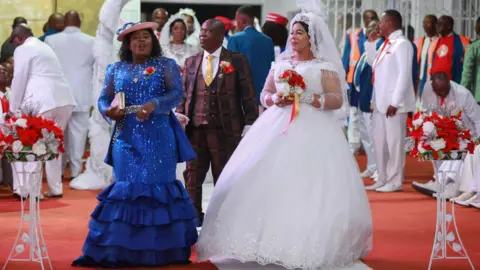 Nhlanhla Phillips
Nhlanhla PhillipsShe was handpicked by his first wife, who has since died, while a third wife had also joined the family – leaving in the wake of a leadership row that split the congregation.
The 48-year-old explained that as the process of adding another spouse had started spiritually, it made it easier to regard the incoming wife as a sister and friend.
“We [first three wives] got along to a point where we’d wear matching clothes. So I learnt this from the Molala family and that’s why I was able to do the same for Evelyn.”
Before the official start of the marriage ceremonies – which each involved an exchange of rings but no spoken vows – the jubilant congregation gathered outside the auditorium at around noon in a riot of colour and noise.
Loudspeakers blaring out church songs competed with the cheers of thousands of well-wishers – some of whom were dressed in the church’s blue-and-white uniforms, while others sported their Sunday best.
Over the next five hours bridal parties arrived to great fanfare and tried to outdo one another: one large contingent of bridesmaids was dressed in different shades of electric lime green, another featured a Gucci-clad groomsman.
Beforehand church officials had checked the outfits at the gate to make sure everyone in attendance was suitably dressed – no skimpy outfits, bare arms or trousers allowed for women, who also had to cover their heads, with jackets prescribed for men.
The church has a strict moral code – the sexes sit separately inside the auditorium during ordinary services and dating is not allowed.
“I only learned about polygamy when I joined the church and was taught that simply dating a woman was not allowed. So because I realised that one woman would not be enough for me, I felt that rather than cheat, let me get another wife,” Lesiba Molala, 67, told the BBC.
These mass weddings take place three times a year at the church’s grand headquarters in the small rural town of Zuurbekom – at Easter, in September and December.
After each wedding party’s raucous arrival was over, the group walked a red carpet to take photos.
Then it was time for the church’s leader, Leonard Frederick G Modise, to arrive – and his entrance almost stole the show.
Referred to as “the comforter”, he was ushered in – along with his family – by a marching band, horse parade and a series of luxury vehicles, among them a midnight sapphire Rolls Royce.
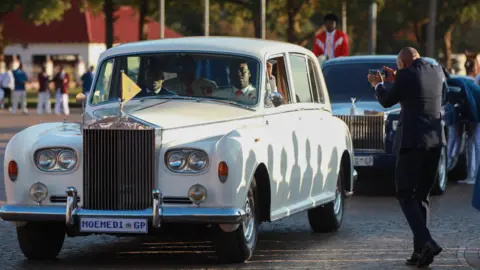 Nhlanhla Phillips
Nhlanhla Phillips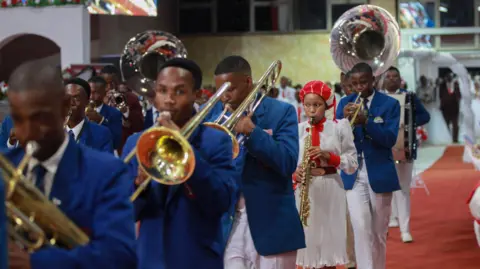 Nhlanhla Phillips
Nhlanhla PhillipsAs the sun began to set, it was time for the official programme to begin – with each entourage entering the auditorium to make their way slowly down the white-carpeted aisle.
I caught up with the Molala trio before their turn. Evelyn was excited and all smiles about her dress: “I told you, you would not recognise me!”
The service, which went on until 22:00, ended with a blessing from Mr Modise for the new couples and their other spouses – with the festivities going on long into the night.
While such pageantry is often associated with weddings here – albeit not on such a grand scale – multiple marriage ceremonies are unusual, even in a country as diverse and multicultural as South Africa.
So too is the inclusion of polygamous unions. While polygyny – the marriage of a man to several women – is allowed in South Africa, such relationships are usually registered as customary marriages and are not celebrated in church.
However, the IPHC is one of what is known as an African independent church, which is allowed to officiate them – as long as the marriages are also registered with the country’s home affairs department.
According to the 2022 census, more than 85% of South Africans identified as Christian, followed by 8%, who said they practised traditional African beliefs.
Several churches with large congregations mix both belief systems – like the IPHC – though mainstream Protestant and Catholic churches remain the biggest denominations.
For the IPHC, polygamy has been taught and encouraged and has “evolved with the church” from its inception in Soweto in 1962 to a congregation today of 3.1 million across southern Africa, senior church official Mpho Makwana told the BBC.
Mr Molala married his first wife in 1991, six years after joining the church. She was also a member – an important factor for those looking to take a spouse. The church explicitly forbids marriages to outsiders.
Nine years later, Mr Molala and his wife sat down to discuss the expansion of the family. After a church-wide search, the couple settled on Shirley who was then 23.
“I felt important [because I was] noticed among the many women in the church,” she said.
Evelyn too was selected after a church-initiated process that began in February. She admitted it took a while for her to warm to the idea of joining a polygamous union, though Shirley’s receptive attitude made it easier for her.
The 44-year-old had grown up in the church but later left, going on to have three children, before returning to the fold a few years ago.
With his marriage to Evelyn, Mr Molala has informally adopted her children, bringing the total number of his offspring to 13.
Each of his families live in separate houses – although Evelyn will join him at his home for the early stages of the marriage.
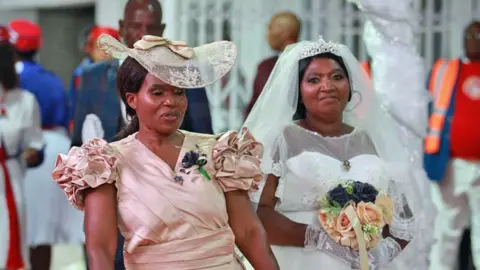 Nhlanhla Phillips
Nhlanhla PhillipsPolygamy, traditionally practised in some South African cultures, does divide people in the country. In recent years several reality shows have given an insight into life in plural families – and sparked debate about whether they are still relevant.
Prof Musa Xulu, a religious expert with South Africa’s Cultural, Religious and Linguistics Rights Communities Rights Commission, said it was common to come across families in such unions who had been devastated in the initial stages of the HIV/Aids pandemic, which has ravaged South Africa.
The situation had stabilised, though it was still “a big problem”, he told the BBC.
Mr Makwana said the IPHC had addressed this head on – putting in place measures about a decade ago to better protect couples and polygamous unions from HIV/Aids after one family’s experience, which had been an “eye-opener” for the church’s leadership.
Those intending to get married must first get tested for HIV.
“You can’t proceed without going through that process… so there are no surprises ahead,” he said.
The couple must tell each other their results, decide whether to continue and then the church keeps a record on file.
This “100% transparency” also reduced the number of divorces that had often resulted when deception came to light, he said.
Prof Xulu said churches like the IPHC, while having an “eclectic approach to Christianity” that was “half-Christian, half-African”, did have doctrinal justifications for their traditions as well as “internal dispute-resolution mechanisms”.
“They will assist families who are undergoing distress,” he said.
The IPHC is heavily involved in the vetting process once a proposal has been accepted. It takes several months and is marked by three pre-nuptial ceremonies.
During this time, couples were “taken through a spiritual process of ensuring they know what they are committing to”, Mr Makwana said.
Most couples are relative strangers before the formal proposal is made – as was the case for Freddy Letsoalo, 35, and 31-year-old Rendani Maemu.
They also tied the knot in Zuurbekom over Easter – both marrying for the first time.
Mr Letsoalo said he first spotted his bride-to-be at a friend’s wedding nearly a decade ago – also celebrated at one of the mass marriage ceremonies.
But they “didn’t talk or do anything else” after their initial meeting, he told the BBC.
“It was love at first sight but remember, we know… the teachings of our church.”
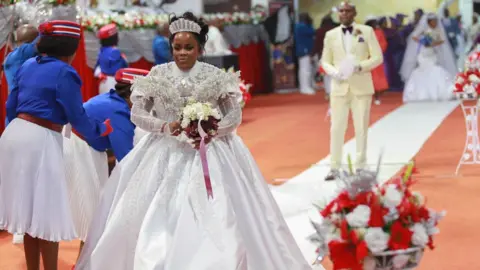 Nhlanhla Phillips
Nhlanhla PhillipsWhile the two would later become Facebook friends, their interactions were restricted to birthday wishes – that was until December 2024 when Mr Letsoalo set the wheels in motion, alerting first his family and then the church’s leadership of his intentions.
“I wasn’t aware that he was interested in me. When I became aware… I was excited. I’ve always dreamt of my wedding day,” a blushing Ms Maemu, who was raised in the church, told me before the nuptials.
Her dream came true and she did look resplendent before going down the aisle along with nine bridesmaids in a crystal-encrusted gown, tiara and a bridal train several metres long.
While the couple are currently focused on their new life together, both are willing to embrace polygamy should the right opportunity present itself in the future.
“I know there’s a chance that my husband will want to enter into a polygamous marriage,” said the new Mrs Letsoalo.
“I believe in polygamy.”
A view that may be controversial for many South Africans.
You may also be interested in:
 Getty Images/BBC
Getty Images/BBCSource link





